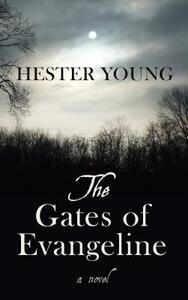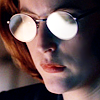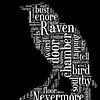You need to sign in or sign up before continuing.
Take a photo of a barcode or cover
I figured out the mystery pretty quick and the ending was trite, but I still enjoyed the book. It wasn't bad, just predictable.
adventurous
dark
mysterious
medium-paced
Diverse cast of characters:
No
Moderate: Child death, Homophobia
The Gates of Evangeline was such an unexpected surprise of a book! I loved the story as well as the subplots involving Charlie dealing with the grief of losing her young son. I believe this is the author’s debut and I am incredibly impressed by her storytelling abilities.
I have read several works of fiction about the grief of a parent after losing a child. I have to say this book is one of the most moving that I have ever read. The author did a great job of Charlie conveying the many emotions of a woman in the throes of unimaginable grief. I liked that the book was not only about Charlie solving a decades old mystery, but also her struggles to move on after her son’s death.
The secondary characters were intriguing and I liked learning about the scandals of the Deveau family. Also, there is a touch of romance, but it didn’t overpower the story.
The mystery was intriguing and I liked the paranormal angle. I loved the eerie vibe while reading and I enjoyed the setting of an older southern mansion. The book is more spooky than scary with the pacing on the slower side. I liked the buildup though and I felt like the climax really delivered.
The Gates of Evangeline a terrific book that will appeal to fans of Southern Gothic novels.
Rating: 4.5/5 Stars
Thanks to the publisher for a copy for review!
I have read several works of fiction about the grief of a parent after losing a child. I have to say this book is one of the most moving that I have ever read. The author did a great job of Charlie conveying the many emotions of a woman in the throes of unimaginable grief. I liked that the book was not only about Charlie solving a decades old mystery, but also her struggles to move on after her son’s death.
The secondary characters were intriguing and I liked learning about the scandals of the Deveau family. Also, there is a touch of romance, but it didn’t overpower the story.
The mystery was intriguing and I liked the paranormal angle. I loved the eerie vibe while reading and I enjoyed the setting of an older southern mansion. The book is more spooky than scary with the pacing on the slower side. I liked the buildup though and I felt like the climax really delivered.
The Gates of Evangeline a terrific book that will appeal to fans of Southern Gothic novels.
Rating: 4.5/5 Stars
Thanks to the publisher for a copy for review!
I'm a sucker for a good Southern gothic romance/mystery and The Gates of Evangeline did not disappoint.
Eagerly awaiting the second installment next year.
Eagerly awaiting the second installment next year.
great writing, good mystery but the ending is quite cheesy & tidy
dark
mysterious
I mostly liked this book but only gave it three stars for a couple of reasons:
- A one night stand with a guy that you barely know; I get it, you are hurting but really?
- I flew through the last half of the book because the mystery had gotten pushed under all these other inconsequential things
- The ending of the book was so ridiculous.
I would recommend the book if you have nothing else really to read but I do not plan on continuing to read anymore of this author's books.
- A one night stand with a guy that you barely know; I get it, you are hurting but really?
- I flew through the last half of the book because the mystery had gotten pushed under all these other inconsequential things
- The ending of the book was so ridiculous.
I would recommend the book if you have nothing else really to read but I do not plan on continuing to read anymore of this author's books.
[3.5 stars]
I love me some Southern family drama and books about wealthy people behaving badly, so it’s not surprising that those aspects of this debut novel appealed to me. But, The Gates of Evangeline also contains a number of elements that usually turn me off: ghosts/visions, a cliche romance, some cheesy writing, and some predictable plot twists.
But, I really enjoyed this book despite all the red flags. It reads quickly and easily and, though I guessed a couple of the major plot points early on, I was surprised by most of the surrounding details. Maybe I just needed a solid Southern family drama page turner or, maybe, I just needed an easy read. Whatever the reason, The Gates of Evangeline came along at just the right time and would make a great beach read.
Visit my blog, www.sarahsbookshelves.com, for more reviews.
I love me some Southern family drama and books about wealthy people behaving badly, so it’s not surprising that those aspects of this debut novel appealed to me. But, The Gates of Evangeline also contains a number of elements that usually turn me off: ghosts/visions, a cliche romance, some cheesy writing, and some predictable plot twists.
But, I really enjoyed this book despite all the red flags. It reads quickly and easily and, though I guessed a couple of the major plot points early on, I was surprised by most of the surrounding details. Maybe I just needed a solid Southern family drama page turner or, maybe, I just needed an easy read. Whatever the reason, The Gates of Evangeline came along at just the right time and would make a great beach read.
Visit my blog, www.sarahsbookshelves.com, for more reviews.
Suffused with the hot, steamy atmosphere of Louisiana The Gates of Evangeline immediately immerses the reader into the leisurely pace of life in the deep South, and the chasm between the have and have-nots. Inveigling her protagonist, Charlie Cates in the lives of the singularly dislikeable Deveau family, with all their deep and dirty secrets, Young spins a tale flavoured with a good dose of Southern Gothic, and a family saga tinged by an otherworldly supernatural twist. Young also captures perfectly the feel of this atmosphere of privilege and superiority that oozes through every pore of this family, and their innate sense of entitlement. With her vivid use of the Louisiana setting, and the depiction of the Deveau mansion and grounds, this aspect of the book is particularly potent. Equally, I loved the use of the steamy, festering, alligator-infested swamps, backing onto the Deveau property which added a real air of threat and menace to the whole affair. The description of these was absolutely enthralling, and sent a proper chill down this reader’s spine.
Labouring intermittently under the grief of having lost her own child, and some strange deviations into mystical dreams and visions, on the whole, Charlie Cates embodies a good mix of dogged journalist and vulnerable woman. She is an engaging protagonist, if a little too ruled by other parts of her anatomy rather than her head, as she embarks on a rather dodgy romantic liaison in the course of her investigation into this really rather unpleasant family. I did find the whole ‘vision’ thing a little wearing as the book progressed, as I was much more impressed with her when she was in journalistic mode, trying to tease out confessions and soliciting information from each family member as to the events thirty years previously. With her natural amiability and persistence, she does indeed uncover some grim truths, some obvious, some not, and these more than anything give a credibility and solidity to her character, outside of her more mystic Meg moments, and the slightly cheesy romance with the admittedly buff landscape gardener, Noah, who has more than one secret of his own.
What I particularly enjoyed about this book was the way that Young had obviously strived so hard to make this a comfortable, fairly linear and entertaining read for the reader. There were no real surprises, and a few hackneyed plot devices, but it was really refreshing to read a book that just smoothly carried me along, without making any real demands along the way. It was almost as if Young had sat down and thought what sort of book would entertain her as a reader, and then endeavoured to write that book, and so the book carries a certain kind of charm to it, that lifts it above the slight clunkiness of some of the narrative. I also liked the knowing reference that Young incorporates into her story where one character remarks that, “Not a lot of writers can pull off the whole Midnight In The Garden of Good and Evil thing” as The Gates of Evangeline does navigate similar waters, if less successfully. Yes, the denouement and reveals were not particularly well -disguised, and some of the character’s actions did feel a little out of step at times, but I quickly started ignoring the more obvious missteps, and instead found myself avidly reading to the end, thoroughly enjoying Young’s uncomplicated and engaging style.
Labouring intermittently under the grief of having lost her own child, and some strange deviations into mystical dreams and visions, on the whole, Charlie Cates embodies a good mix of dogged journalist and vulnerable woman. She is an engaging protagonist, if a little too ruled by other parts of her anatomy rather than her head, as she embarks on a rather dodgy romantic liaison in the course of her investigation into this really rather unpleasant family. I did find the whole ‘vision’ thing a little wearing as the book progressed, as I was much more impressed with her when she was in journalistic mode, trying to tease out confessions and soliciting information from each family member as to the events thirty years previously. With her natural amiability and persistence, she does indeed uncover some grim truths, some obvious, some not, and these more than anything give a credibility and solidity to her character, outside of her more mystic Meg moments, and the slightly cheesy romance with the admittedly buff landscape gardener, Noah, who has more than one secret of his own.
What I particularly enjoyed about this book was the way that Young had obviously strived so hard to make this a comfortable, fairly linear and entertaining read for the reader. There were no real surprises, and a few hackneyed plot devices, but it was really refreshing to read a book that just smoothly carried me along, without making any real demands along the way. It was almost as if Young had sat down and thought what sort of book would entertain her as a reader, and then endeavoured to write that book, and so the book carries a certain kind of charm to it, that lifts it above the slight clunkiness of some of the narrative. I also liked the knowing reference that Young incorporates into her story where one character remarks that, “Not a lot of writers can pull off the whole Midnight In The Garden of Good and Evil thing” as The Gates of Evangeline does navigate similar waters, if less successfully. Yes, the denouement and reveals were not particularly well -disguised, and some of the character’s actions did feel a little out of step at times, but I quickly started ignoring the more obvious missteps, and instead found myself avidly reading to the end, thoroughly enjoying Young’s uncomplicated and engaging style.
I probably give it a 3.5 The story is very readable and I had a hard time putting it down. My criticism is that I figured it out the twist fairly quickly. Also, (begin rant) I felt like the main character (and author?) had a very condescending attitude about southerners . It really irritated me several times during the book and it seems like "Yankee superiority" is the last acceptable prejudice in America. End rant.







